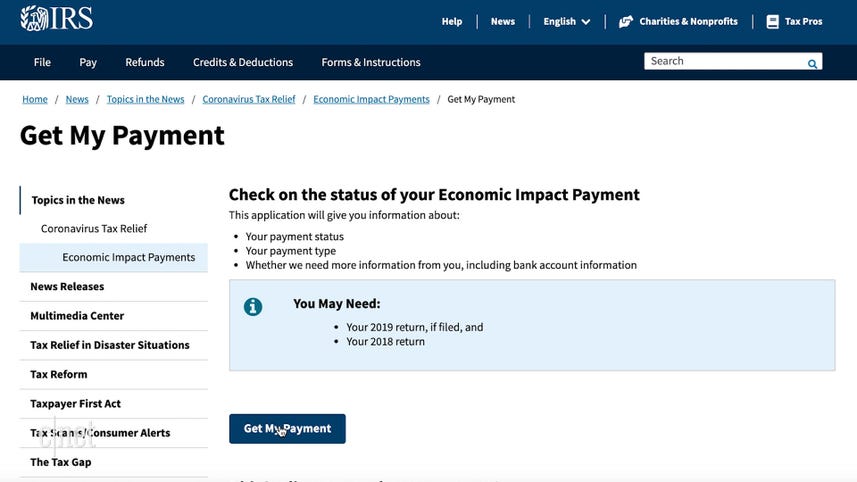
[MUSIC]
The government is getting ready to send out stimulus checks due to a coronavirus pandemic through the US Mail and direct deposit.
For those who qualify for the $1,200 payment, here's how you can get it sent directly to your bank account.
If you already received your tax refund by direct deposit, you're all set.
That's the banking information the IRS will use to send your stimulus payment.
If you receive your refund by mail, the IRS has set up an online tool to get your relief payment transferred electronically to your bank account.
The online tool is called GET MY PAYMENT.
Just head to the IRS Coronavirus.
Get my payments site and tap the blue button.
You may have to wait due to high demand.
Press OK.
And then enter your personal information like your social security number, street address and zip code.
then learn your status.
If you haven't set up direct deposit before with the IRS, you'll need to enter your gross adjusted income.
And whether you received a refund or owed money during your last filing.
You can find this information on your tax return.
Enter your bank information and you're all set.
If you're having trouble finding your bank account number and routing number, you can always look for those numbers on one of your credit checks.
At the bottom of your check, you will most likely see three sets of numbers.
The first set of nine numbers is your routing number.
The second set of 8 to 12 numbers is your account number.
The third set, which you don't use to set up direct deposit, is your check number.
The IRS is warning people to look out for scam artists.
We're trying to steal your personal information to get your check.
Remember, the IRS will not call, text, email, or contact you on social media.
They'll never ask over the phone or in an email for your personal information or bank account.
Also pay attention to emails with attachments or links claiming to have info about your stimulus check.
These are all red flags and to be avoided One last tip.
If you receive a check for an out and bound by $1433.45, that's a scam.
If you are asked to call a number to verify your information at a website, that's also a scam.
For more personal finance information, visit us at cnet.com